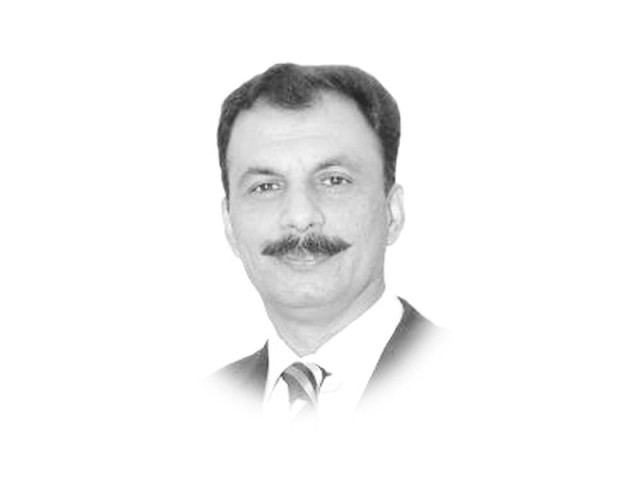The need for police reforms
Police reforms should opt for inclusiveness of community and should be reflective of public aspirations

The writer is a senior police officer posted to Khyber-Pakhtunkhwa
Since independence, Pakistanis have been desperately trying to transform the police into a genuine public service and a custodian of human rights. Despite widespread anti-police feelings, victims of injustice are left with no other option but to knock at the doors of police stations. The foremost and minimum expectation of a complainant is to be patiently heard and humanely treated but often victims of crimes also end up becoming victims of the criminal justice system. The citizens’ interaction with the police is where their relationship with the state is either weakened or strengthened. In some cases, the relationship can even split. Such a split may breed extremism or a silent hatred towards the system. Such situations provide opportunities to extra-judicial apparatus to intervene, thus strengthening non-state actors. The police should be mindful of the fact that it enjoys powers, perks and discretion at the cost of the public exchequer; hence only a public-centered policing model can bring real dividends.
During the last 67 years, 21 commissions and committees were mandated to recommend police reforms. A few enlightened police officers also tried to convince governments in this regard and introduced reforms but vested interests often came in their way. The recommended reforms were either shelved during the implementation stage or evaporated even before implementation.
The promulgation of the Police Order (PO) 2002 brought a ray of hope that perhaps the tiresome journey of transforming the police into a true public service has started, however, soon this law became a casualty of vested interests. Theoretically, the PO 2002 incorporated the ideals of public safety, a public complaints apparatus, envisaged tenures for senior police officers, tried to establish transparency in their postings, provided distinction between urban and rural policing and envisaged improving coordination within the criminal justice system. However, the top police management failed to implement these reforms fully. Dozens of amendments distorted its real fabric. The original police order used the terms “public” and “service” 266 and 37 times respectively. The post-9/11 scenario, however, pushed the Pakistani police into a new trap. It was not trained to carry out counterterrorism activities but poorly-trained policemen were still expected to provide the first line of defence against terrorism and shielded the public at the cost of their blood.
The ongoing wave of militancy and terrorism has totally changed the outlook of police stations and policemen. Police stations are fortified with sand bags and concrete barricades; hence instead of being symbols of security, they look even more imposing to terrified victims of crime. Heavily armed policemen wearing bullet-proof jackets and traffic cops armed with Kalashnikovs have further increased the distance between the public and the police.
In democratic societies, the police service does not provide a closed-door service. It is supposed to be the smiling face of the state. History tells us that fair policing practices strengthen democracy and improve the image of countries. Democratic policing warrants a free flow of communication between elected governments and the police management: elected members know what will satisfy the public and communicate that to the police management; in response, the police leadership persuades the elected elite regarding its weaknesses, challenges and needs. Funds are accordingly allocated to the police. However, here the rigid bureaucratic structure of the police creates barriers in the free flow of communication. Improvement of policing standards requires inward and outward openness of communication but in Pakistan even low-ranking police officials wait for months or years to seek justice from high-ranking officers or service tribunals, leave alone the plight of victims of crimes.
Policing without ensuring public safety and an independent complaints disposal apparatus is nothing more than a cosmetic arrangement. Transparent, merit-based recruitment and apolitical postings and promotions are also needed to protect the interests of victims. Before expecting more perks, facilities and finances, the police management should be mindful of its performance. What is also needed is an organised feedback collection apparatus.
To make the police the humane face of the state, political parties should instill the spirit of volunteerism among their followers. By encouraging community participation, political parties can contribute towards the upholding of the rule of law. The elected leadership should realise that there is ample space to introduce innovation and make investments in law enforcement. Globally, successful police reforms have never been a product of isolated endeavours; rather they are an outcome of public needs, lobbying and consensus. Police reforms should opt for inclusiveness of community and should be reflective of public aspirations, anchored by the elected leadership. A professional police service will then work towards converting these aspirations into reality. The real transformation of the police as a public service will only start once it starts treating victims of crimes humanely and exhibits zero tolerance for criminals.
Published in The Express Tribune, April 10th, 2015.
Like Opinion & Editorial on Facebook, follow @ETOpEd on Twitter to receive all updates on all our daily pieces.













COMMENTS
Comments are moderated and generally will be posted if they are on-topic and not abusive.
For more information, please see our Comments FAQ